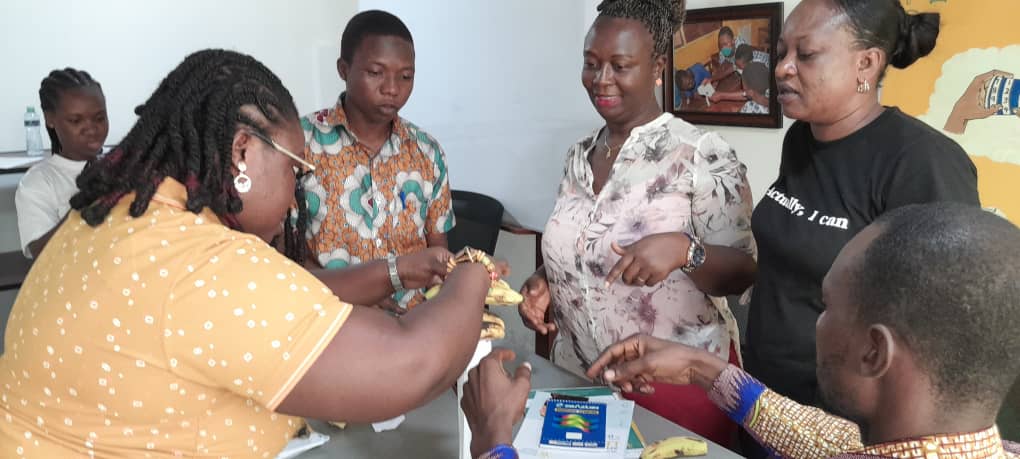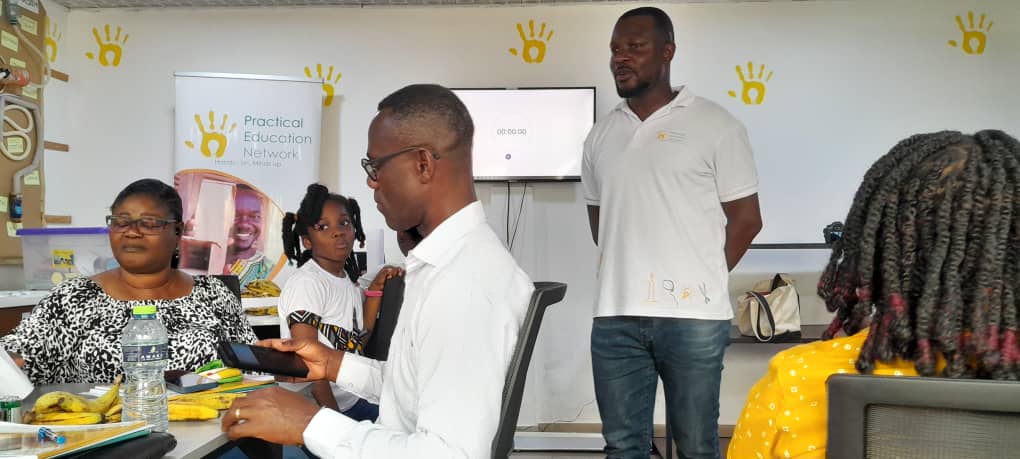By Eunice Hilda A. Mensah
Accra, Sept. 28, GNA – The Zonta Club of Accra has sponsored teachers within the Ghana Education Service through Science, Technology, Engineering and Mathematics education to improve learning outcomes in schools.
The teachers, mostly from the Ga East Municipality in the Greater Accra Region, were taken through practical Science lessons dubbed: traveling water, breathing model, building and electromagnet, water in plastic cup, balancing chemical reactions, expansion of liquids, CO2 balloon, heat rises cold sinks, candles in a cup, and coin burn experiment.
They were also grouped to build a firm structure with an A4 sheet to carry fingers of banana on them.
Mrs Clara Browne, President of the Club, said STEM education was the cornerstone of innovation and progress in the 21st century as it equipped individuals with the knowledge and skills needed to tackle the complex challenges of the rapidly changing world.
It also empowered students to become critical thinkers, problem solvers, and builders of a brighter tomorrow, she added.
“We in Zonta believe that investing in our teachers is an investment in the future of our children and, consequently, the future of our nation. By supporting these educators, we are sowing the seeds of innovation, curiosity, and discovery in the hearts and minds of the next generation,” she said.

Mrs Browne thanked the Practical Education Network (PEN) for its collaboration, saying together, they would forge a path towards a brighter and more prosperous future for Ghana and beyond.
To the teachers who are the driving force behind the initiative, the Club President commended and gave them an assurance of the Club’s support to achieve the set objectives.
Let us all remember that education is the most powerful weapon we can use to change the world. As Nelson Mandela once said, with our collective efforts, we are not just changing individual lives; we are shaping the destiny of our community and our nation, she added.
Mr Joseph Quaye Amoo, the Programmes Manager of PEN, said the teachers were taught how to make Science experiments with “everyday” materials like balloons, polythene, rubber bands, and discarded water bottles.
“This exercise is expected to move our educational system from the ‘chew, pour, pass and forget’ state to a desired State because how can you forget knowledge that is so important to our society,” he said.
Children have a lot in them and would be very resourceful when given the right training, he said.
Mr Amoo said a crafted monitoring system would ensure that success stories were made out of the training in the participating schools.

At the end of the first training, participants said such practical hands-on skills made students actively involved and did away with the teacher-centred approach.
They said it would also make the children re-engaged whenever they got home from school and reduce the attention for too much playing.
Others also said it would encourage teamwork as it would enlighten them on the need to build solid foundations (education and training) to raise good structures (students).
GNA